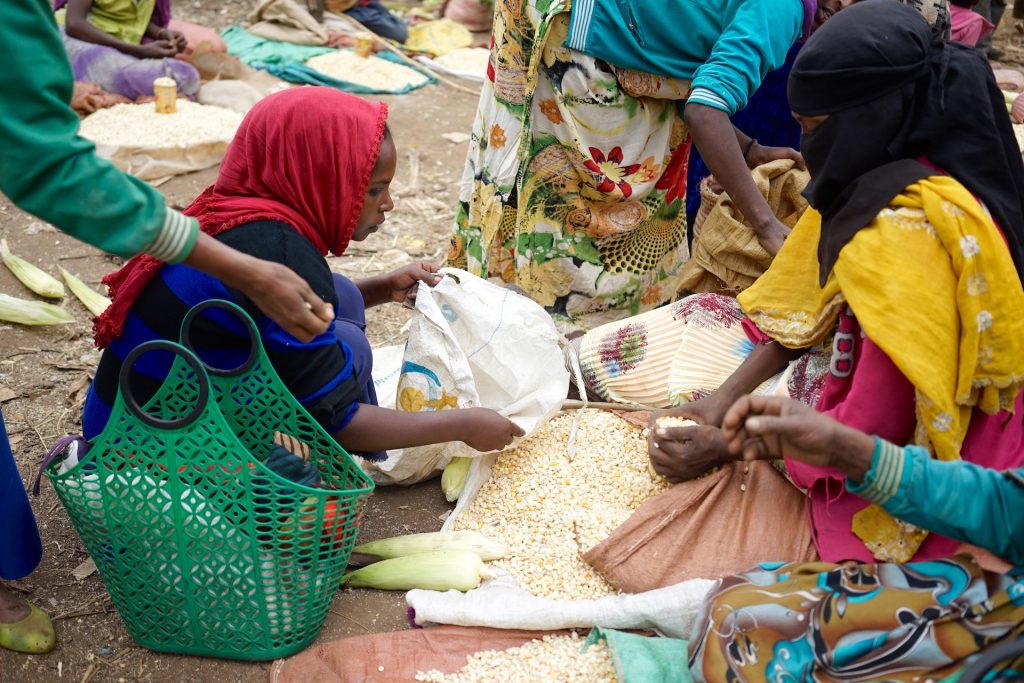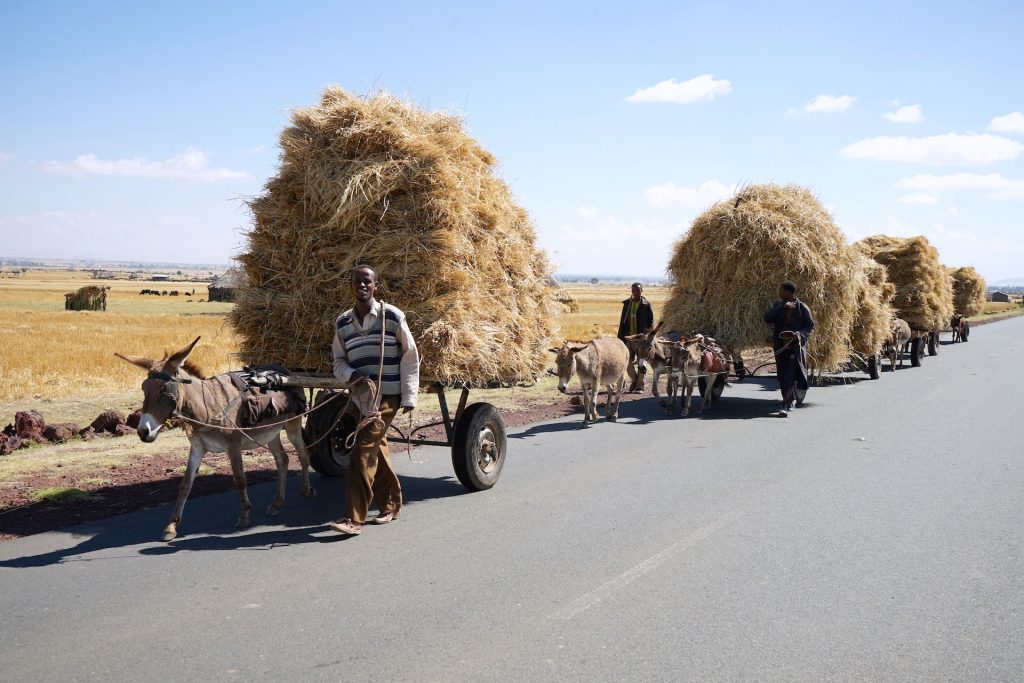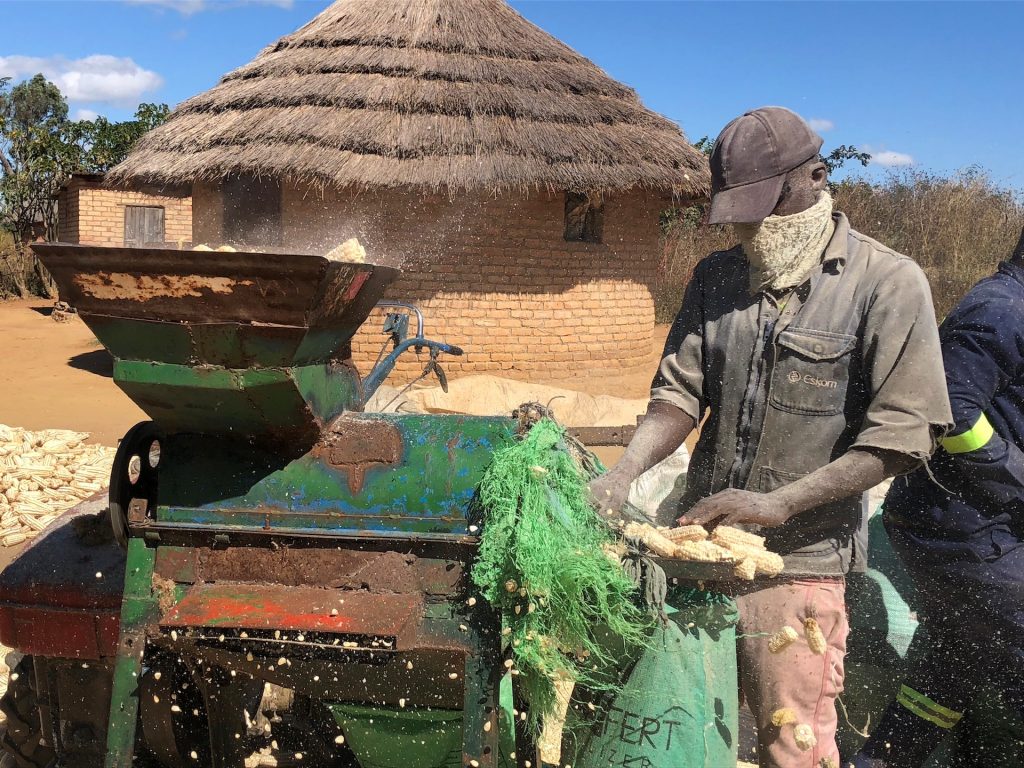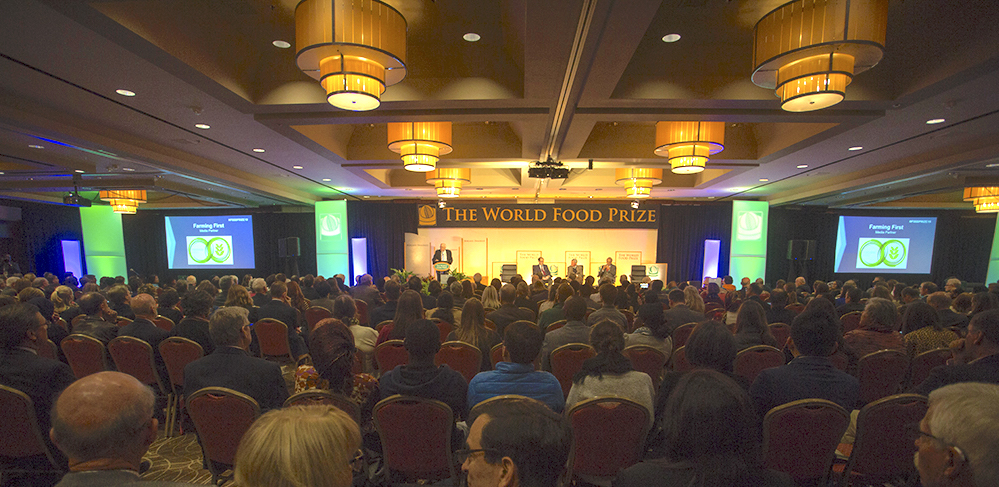
Disclaimer: The views and opinions expressed in this article are those of the authors and do not necessarily reflect the official views or position of the International Maize and Wheat Improvement Center (CIMMYT).
While all eyes are on Lombardy, Madrid, New York and Wuhan, what do we know about the impact of COVID-19 on the rural poor and on food security in developing countries? How can the impact of the crisis be moderated? What positive breakthroughs could be provoked by this shock to move us into a better “new normal”? What can donors and implementing organizations do to support low- and middle-income countries during and beyond this crisis?
Members of the Agriculture and Rural Development working group of the international Scaling Up community of practice held a virtual meeting to discuss these questions and how scaling-up innovations could help to recover from the current crisis and mitigate future ones.
Poor rural communities are particularly vulnerable
When it comes to a highly contagious disease, being in a rural area sounds better than being in a busy city, but that is a deceptive impression. Smallholder farmers often are older than average and hence more vulnerable to the virus, and they have less access to health services.
They also depend on field laborers that are not able to travel from surrounding villages to help with planting, weeding and harvesting. To process crops, smallholder farmers need to transport crops to processing centers, which may be closed, as are the markets where they obtain agricultural inputs or sell farm products. Large international agrobusiness firms, which supply inputs and purchase local famers’ products may withdraw, at least temporarily, from the rural economies. There are already reports of farmers feeding cattle strawberries and broccoli in India, as they are unable to get their goods to the market.
Most farmers also depend on non-farm and off-farm activities for their livelihoods, as they may be field laborers for other farmers, work in the processing industry or work in construction. Interrupted transportation and closures pose serious challenges to maintain safe business continuity throughout the rural economy. The risk is not only that immediate rural production, food deliveries, exports, employment and incomes will collapse, but also that planting for next year’s crops will be disrupted.
It is key to differentiate between global and local supply chains, which will suffer in different ways. For example, in Uganda, supermarkets are open but small, informal markets are closed. In past crises, governments have focused on the survival of global value chains over local ones. Small, rural businesses are more likely to close permanently than large international ones.
Globally, international support for agriculture and rural development has been lagging in recent years. Today, the international support from aid agencies and NGOs is interrupted, as travels are restricted and community meetings are prohibited. With increased donor attention to a domestic and international health crisis, aid for rural communities may drop precipitously.

Opportunities for an improved “new normal” as we respond to the crisis
The short-term response to help minimize the impact of the COVID-19 crisis on the rural poor is critical, but we also need to support the shaping of a “new normal” where rural food systems are resilient, profitable and inclusive for poor rural communities. Members of the Scaling Up community of practice explored various ideas.
First, the COVID-19 pandemic could present opportunities to break silos and show how closely health and agriculture are related.
“COVID-19 cuts across sectors and jurisdictions in ways that single organizations and established governance structures are ill-equipped to accommodate,” said Larry Cooley, Scaling Expert and Founder and President Emeritus of Management Systems International (MSI)
For example, rural agricultural extension networks could be used to disseminate information on health awareness and education around COVID-19 and collect data on local impacts. This may cause and provide relief in the short term, but may also provide opportunities for collaboration in the long run.
“Our agricultural networks go deep into the rural areas and we are training our agri-entrepreneurs in India to disseminate health messages, products and services to help address COVID-19,” said Simon Winter, Executive Director of the Syngenta Foundation.
“At the African Development Bank we are providing emergency relief finance and re-purposing funding to have a link with COVID-19,” said Atsuko Toda, the bank’s Director of Agricultural Finance and Rural Development.
Second, a “new normal” could also mean an even stronger independence from externally funded projects, experts and solutions to more local ownership and expertise in rural areas, something that the community of practice has been promoting strongly. We could help to support more autonomy of the farmer, a strong local market and scale-up local value chains. Strengthening the capacity of small and medium enterprises linking farmers to urban markets could help ensure stability in future economic shocks.
“Governments and donor ‘projects’ looked too much at export and global value chains. I see great opportunities to scale up local and regional input and output value chains that benefit local farmers and small and medium enterprises,” said Margret Will, expert on value chains.
Third, the COVID-19 pandemic presents an opportunity to accelerate the scaling of innovations.
“Lack of access to labor could be disrupting harvesting and planting in our Feed the Future countries, accelerating an already predominant trend of migration, especially among the young, to urban areas. We see a looming need for mechanization of farms at scale, using mini-tillers, planters, harvesters and other time- and labor-saving equipment,” said Mark Huisenga, Senior Program Manager for the USAID Bureau for Resilience and Food Security.

Rural communities that use more ecological intensive practices, such as conservation agriculture and push-pull farming or safe storage practices are less dependent on external inputs and labor.
The current crisis forces us to use digital communication systems, replace human work with digital tools where possible and use technology to help target interventions. Both the public and private sector could build on this opportunity to invest in increased access to internet, electricity and other digital resources, including in impoverished areas. All these technological innovations can help farmers to better cope with the constraints of COVID-19 and any future crises or stresses to the food system, while also making agriculture more productive and more attractive to the young.
“The pandemic creates an opportunity to accelerate the use of digital technologies in smallholder agriculture, not only for extension advice but to crowdsource information about COVID-19 impacts,” said Julie Howard, Senior Advisor for the Center for Strategic and International Studies (CSIS).
Finally, COVID-19 will change our global governance system, and the agriculture, research and development sector has a role to play in this transformation. A systems change must focus on dietary diversity and food safety and security, paying attention to the rural poor in low- and middle-income countries. We can work together to scale cross-sector platforms to build solid networks and scale-up innovations to strengthen sustainable and resilient food systems.
Systems change beyond the agricultural sector, sustainability through local ownership and uptake of innovations that support profitable and resilient agricultural and related rural activities are key components of how the Scaling Up Community of Practice approaches scaling. A systems change is imminent, and it is important to support a transformation in a direction where local markets, rural labor and regional economies come out stronger in the long term. This requires vision, expertise, mobilization of resources, information sharing and crowdsourced leadership, and the network of scaling experts can contribute to this.
The Agriculture and Rural Development working group of the international Scaling Up community of practice is made up of individuals from more than 100 official donors, foundations, think tanks, research and development organizations united by their interest in scaling the impact of innovations on food security and rural poverty. Areas of particular interest for the group include designing for scale, using scaling frameworks, learning about scaling, responsible scaling, sustainability and system thinking. Members of the working group include professionals with vast experience from the field, and the group explicitly tries to learn from the application of complex concepts such as sustainability, systems change and scaling in real world settings by local actors. In addition to quarterly virtual meetings, the working group encourages and supports exchanges among its members on a variety of subjects. Participation in, and management of, the Agriculture and Rural Development working group is done on a purely voluntary basis.
About the Authors:
Lennart Woltering — Scaling catalyst at CIMMYT and chair of the Agriculture and Rural Development working group.
Johannes Linn — Non-resident Senior Fellow at Brookings and former Vice President of the World Bank.
Maria Boa — Scaling coordinator at CIMMYT and secretary of the Agriculture and Rural Development working group
Mary Donovan — Communications Consultant at CIMMYT.

 Climate adaptation and mitigation
Climate adaptation and mitigation 

